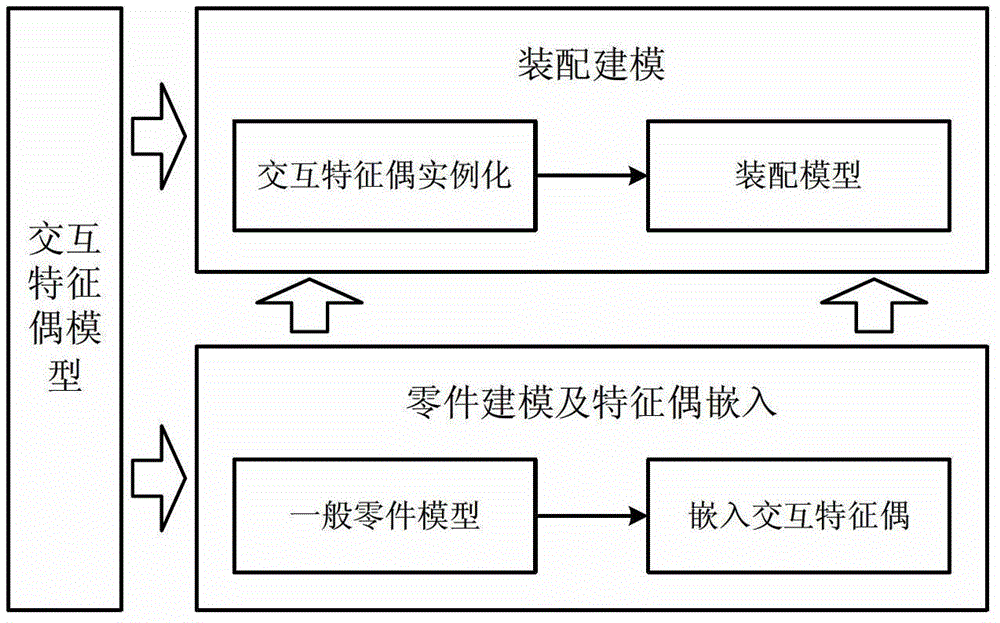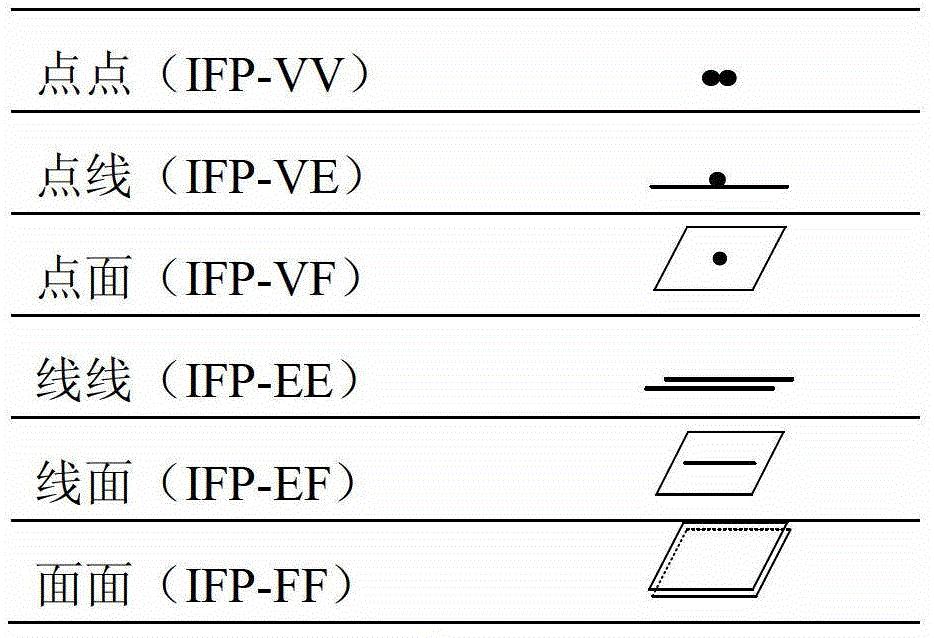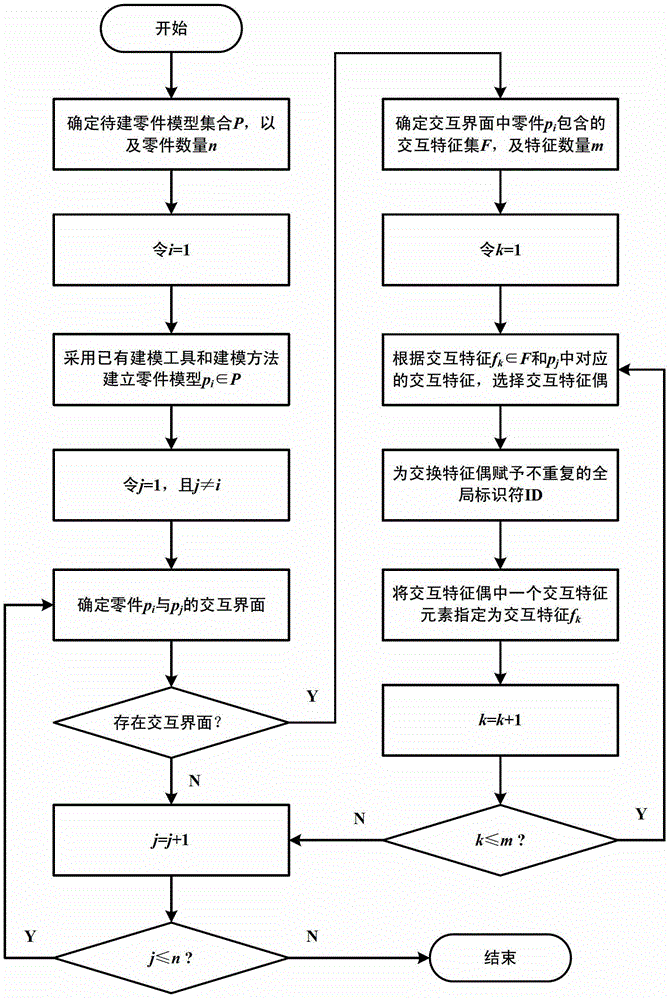A Product Modeling Method Based on Interaction Feature Pair
A product modeling and product technology, applied in special data processing applications, instruments, electrical digital data processing, etc., can solve problems such as dependence, difficulty in consistency, and difficulty in generating general methods to ensure consistency and good products. Assembly Modeling Effects
- Summary
- Abstract
- Description
- Claims
- Application Information
AI Technical Summary
Problems solved by technology
Method used
Image
Examples
Embodiment 1
[0073] This implementation example is to build an assembly model platform-top cone 9 of platform 1 and top cone 2 based on the interactive feature pair.
[0074] The specific steps of building part model platform 1 and top cone 2 and embedding interactive feature pairs in them are as follows:
[0075] Step 1.1: Determine the set of part models to be established P={platform 1, top cone 2}, the number of parts n=2;
[0076] Step 1.2: Select part model p 1 =Platform 1, use CATIA modeling tool to build part model p of platform 1 1 ;
[0077] Step 1.3: Determine the part model p 1 = platform 1 and part p 2 =The interactive interface of the top cone 2, if there is no interactive interface, then enter step 1.5, otherwise enter step 1.4;
[0078] Step 1.4: Determine the part model p in the interactive interface 1 =Interaction feature set F contained in platform 1={platform feature point 3, platform feature surface 4, platform feature line 5}, wherein the number of interaction fe...
Embodiment 2
[0097] This implementation example is to establish a plate-cone assembly 24 of a plate 19 and a flat cone 20 based on the interaction feature pair.
[0098] The specific steps for establishing the part model flat plate 19 and flat head cone 20 and embedding interactive feature pairs therein are as follows:
[0099] Step 1.1: Determine the set of part models to be established P={flat plate 19, flat cone 20}, the number of parts n=2;
[0100] Step 1.2: Select part model p 1 = flat plate 19, adopt CATIA modeling tool to set up the part model p of flat plate 19 1 ;
[0101] Step 1.3: Determine the part model p 1 = plate 19 and part p 2 =The interactive interface of the flat cone 20, if there is no interactive interface, then enter step 1.5, otherwise enter step 1.4;
[0102] Step 1.4: Determine the part model p in the interactive interface 1 =interaction feature set F={plate feature surface 21} contained in the flat panel 19, wherein the number of interactive features m=1; ...
Embodiment 3
[0116] This implementation example is to establish a plate-nail assembly 37 of a plate with holes 31 and a nail 32 based on the interaction feature.
[0117] The specific steps for building the part model with holes 31 and nails 32 and embedding interactive features therein are as follows:
[0118] Step 1.1: Determine the part model set P={perforated plate 31, nail 32} that needs to be established, and the number of parts n=2;
[0119] Step 1.2: Select part model p 1 =perforated plate 31, adopt CATIA modeling tool to set up the part model p of banded plate 31 1 ;
[0120] Step 1.3: Determine the part model p 1 = perforated plate 31 and part p 2 =the interactive interface of nail 32, if there is no interactive interface, then enter step 1.5, otherwise enter step 1.4;
[0121] Step 1.4: Determine the part model p in the interactive interface 1=interaction feature set F contained in the plate with holes 31={feature line 33 with plate holes, feature surface 34 with plate hol...
PUM
 Login to View More
Login to View More Abstract
Description
Claims
Application Information
 Login to View More
Login to View More - R&D
- Intellectual Property
- Life Sciences
- Materials
- Tech Scout
- Unparalleled Data Quality
- Higher Quality Content
- 60% Fewer Hallucinations
Browse by: Latest US Patents, China's latest patents, Technical Efficacy Thesaurus, Application Domain, Technology Topic, Popular Technical Reports.
© 2025 PatSnap. All rights reserved.Legal|Privacy policy|Modern Slavery Act Transparency Statement|Sitemap|About US| Contact US: help@patsnap.com



